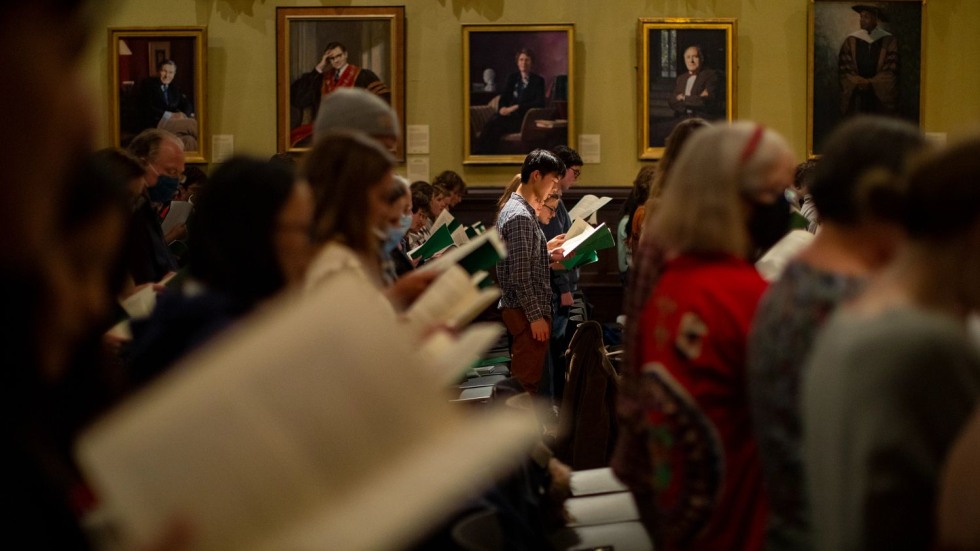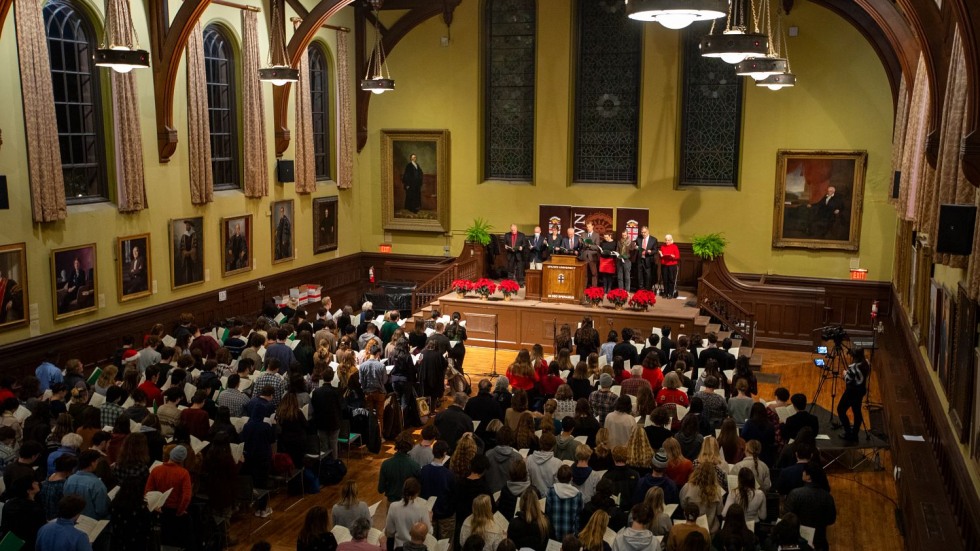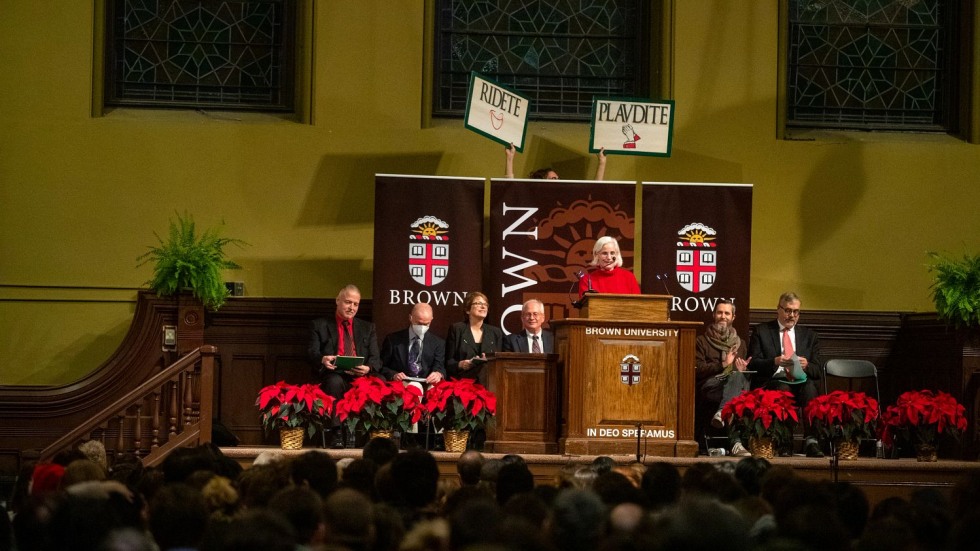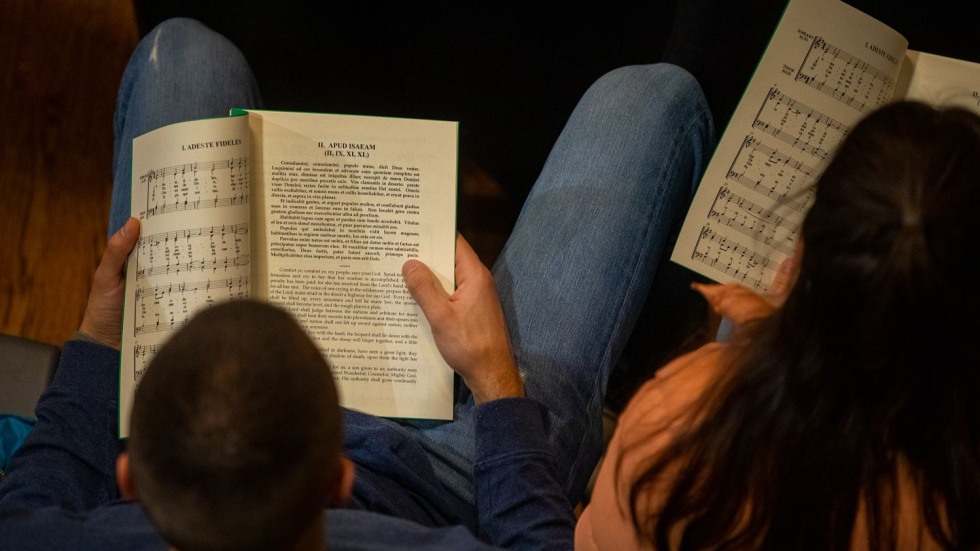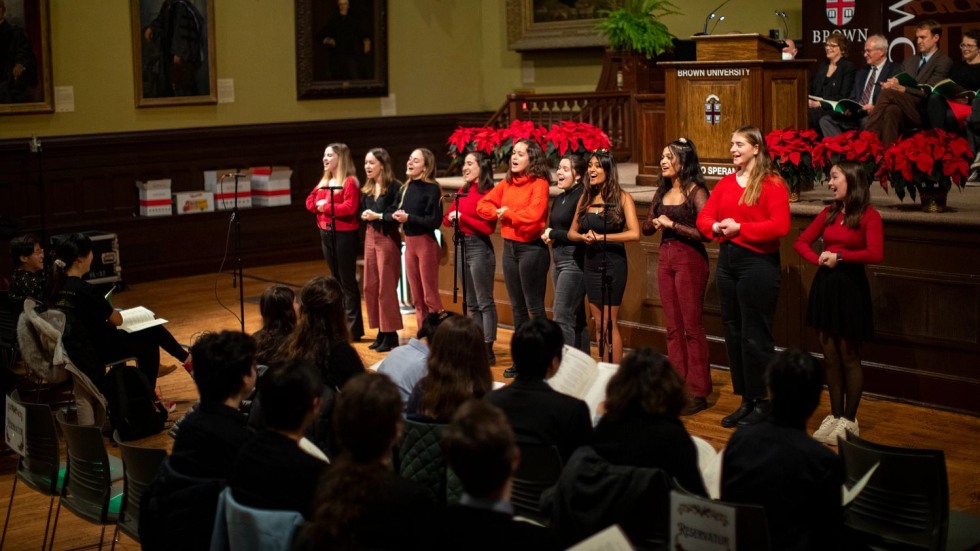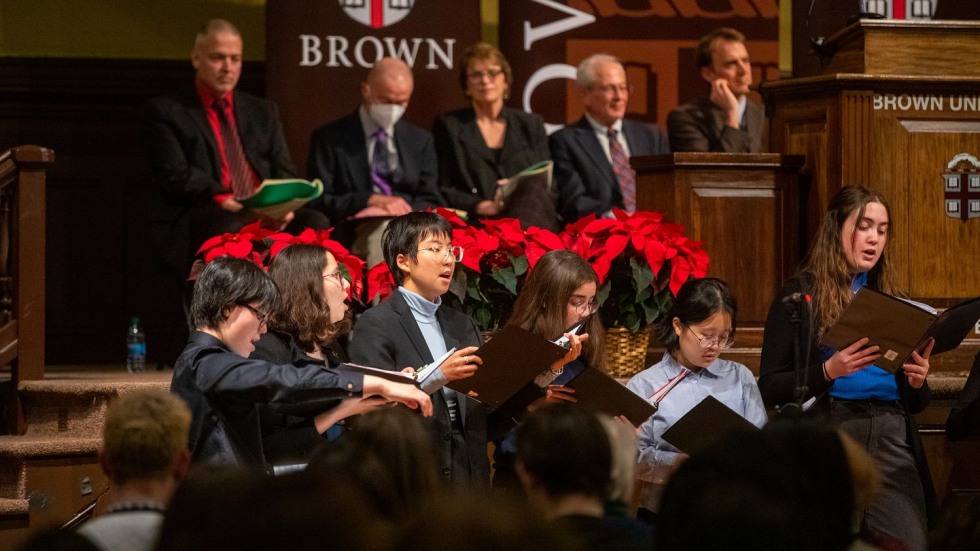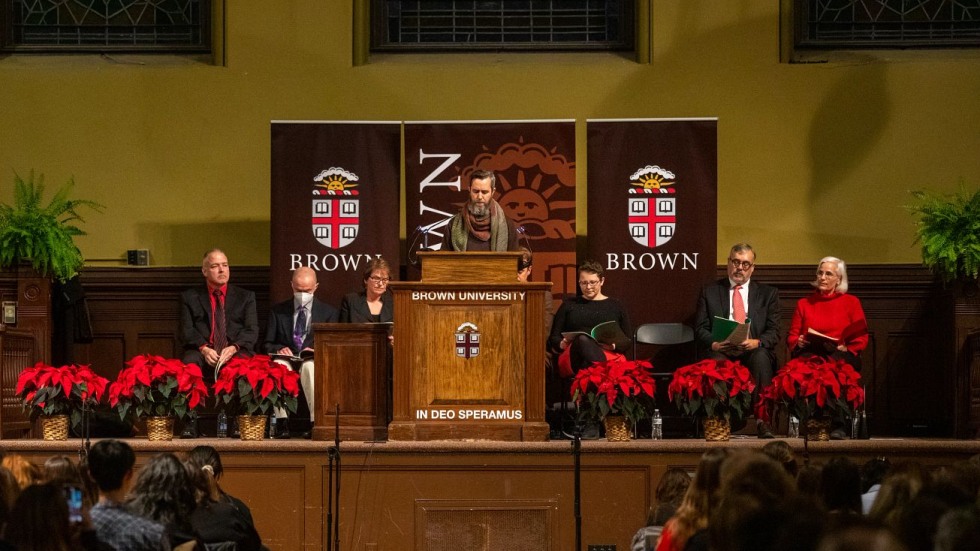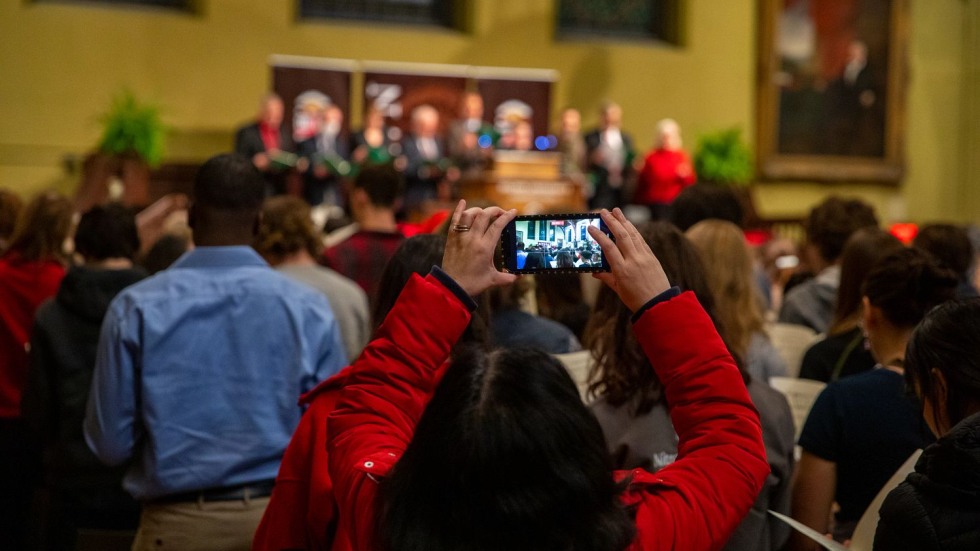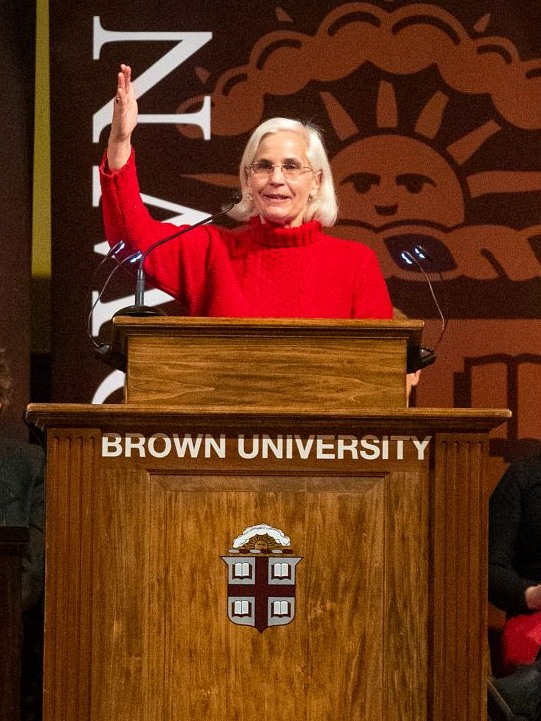PROVIDENCE, R.I. [Brown University] — “Mox est celebrandum!” proclaimed posters, emails and social media posts in the weeks leading up to a very special Monday, Dec. 5, event at Brown University.
For those whose Latin is a little — or a lot — rusty, that translates to “soon we will celebrate.”
Nearly every December since 1948, the one-night-only Latin Carol Celebration has brought so-called “dead languages” to life through performances, readings and carol singalongs in Latin, ancient Greek and Sanskrit.
Hosted by the University’s Department of Classics, the offbeat, highly spirited event draws hundreds of audience members from far and wide. Attendees include College Hill students and scholars, young Latin learners from middle and high schools across New England, local language lovers — and even curious onlookers who know next to nothing about ancient languages. On Monday night, more than 500 people from multiple states and generations packed into Sayles Hall, or joined the online livestream, for the 74th celebration.
“There have been years where attendance was up to 800 or 900 people,” said Jeri DeBrohun, an associate professor of classics and director of the celebration since 2005. “Even last year, when we were all singing in masks and fewer people were gathering in large groups, there were close to 400 people in the audience.”
DeBrohun said the Latin Carol Celebration was founded by John Rowe Workman and Herbert Newell Couch, two classics professors at Brown. Workman — still remembered today as one of the most beloved faculty members in University history — played the organ at the first annual celebration, and Couch served as emcee, or “magister equitum.” Couch’s “salutatio,” or opening speech, provided a heartfelt and humorous account of the past year on College Hill and in the broader Rhode Island community.
